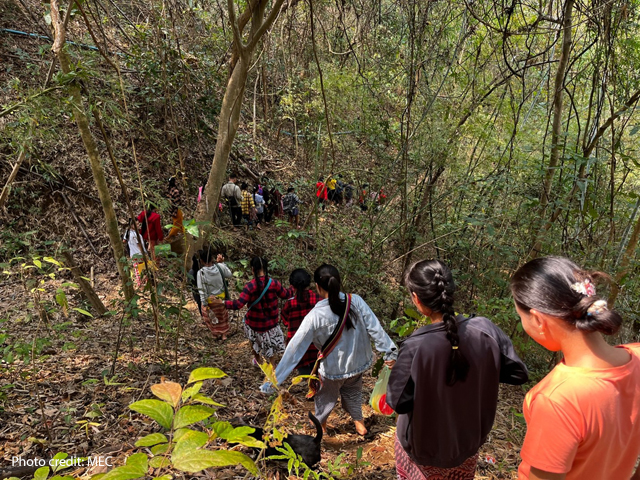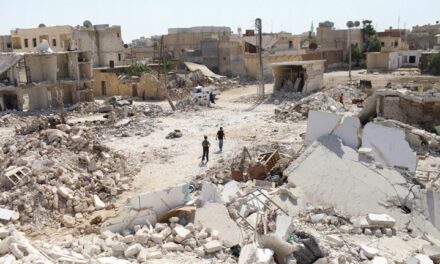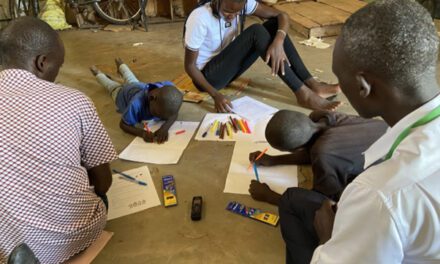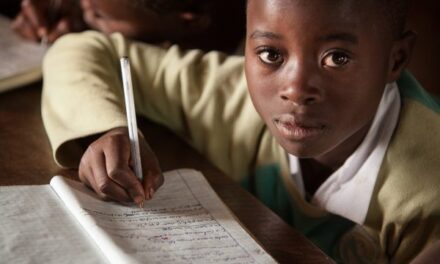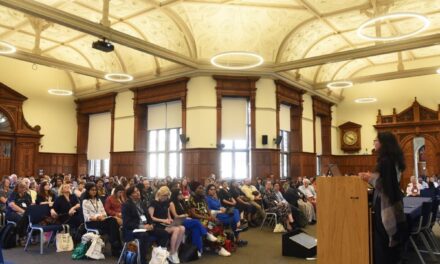This blog was written by Mya Sandi Aung, Education Director, Myanmar Education Consortium; Nay Myo Htet, PhD researcher at the University of Manchester; and Khaing Phyu Htut, Education Adviser, Foreign Commonwealth & Development Office (FCDO), Myanmar. The reflections below are based on a panel discussion, ‘Education Crisis in Myanmar’, chaired by Dr Chris Berry at the September 2023 UKFIET conference.
During the panel session, representatives Myanmar Education Consortium (MEC) partners gave a presentation on the resilience and responses of ethnic education systems to the education crisis in Myanmar: Mya Sandi Aung, MEC Education Director, discussed ethnic resilience and responses; Nay Myo Htet, a PhD researcher from the University of Manchester, discussed the meaning of ‘quality education’ in post-coup Myanmar; and Khaing Phyu Htut from FCDO Myanmar, presented the views of state school teachers on the country’s nationwide education crisis.
Mya Sandi Aung: Director of Education, Myanmar Education Consortium (MEC) – It was my first time at the UKFIET conference, but I was pleasantly surprised by the diverse and well-balanced presentations between practitioners and researchers. Reflecting on my interest in representing MEC, which supports ethnic education systems in Myanmar, I gained invaluable knowledge on inclusive education programming, teacher education, and building resilience and capacity of education systems in conflict-affected areas. Witnessing passion and interest in our panel discussion on education in Myanmar was the highlight. The research presented was a collaborative project across ethnic education providers to understand the nature of resilience that has allowed continued access to education against the backdrop of the pandemic and armed conflict. We are thankful for the opportunity to share our learning from diverse perspectives at UKFIET.
Education in Myanmar is in crisis and will need a concerted effort by researchers, practitioners, donors, policymakers and partners to come together to find solutions. At the UKFIET conference, I felt very supported and replenished with new knowledge and got to know an expanded network of professionals to benefit MEC and Myanmar. To define my experience, UKFIET was a space for dialogue and conversation to foster learning and find evidence-based, innovative solutions for education in conflict-affected areas .
Nay Myo Htet: PhD researcher, University of Manchester – As an early career researcher from Myanmar, I could not have picked a better conference than UKFIET 2023, because of its diverse representation of people and organisations. Presenting together with Myanmar colleagues, and getting to discuss what ‘education for environmental and social justice’ looks like in Myanmar with the chair and the audience, was a highlight for me. We raised more questions than answers, given the difficult state of Myanmar’s education systems, due to the impact of the COVID-19 pandemic and the military coup in 2021.
However, amongst Myanmar colleagues, we all agreed that we must continue researching, working, and talking with each other to meet the needs of the most disadvantaged groups. We acknowledged that there are not enough spaces to bring Myanmar researchers and practitioners together and not enough resources for them to work together. The UKFIET conference was a much-needed opportunity for us to meet, and we concluded that international organisations can best serve our needs by offering more of these safe spaces and resources.
Khaing Phyu Htut: Education Adviser, FCDO, Myanmar – It is the first time in years for me to see the UK after the pandemic and military coup in 2021. The last time I was in Oxford was in 2020, with a national delegation from Myanmar led by the Union Minister of Education and the Director General. I sorely missed the laughter, smiles and hopes of the Ministry of Education. It was at the height of the national education reform which has now gone or has no more international participation since the military coup in 2021.
At this year’s UKFIET 2023 conference, I was in a session where participants were asked to make one step forward after answering positively to each question in a list. After being asked all the questions on progress in education, I and the ethnic education representative from Myanmar were still at the bottom line. We gazed at the backs of participants who were far ahead of us. Yes, the gap between us and others was shocking. I and the ethnic education representative talked through our eyes. We know we have a long and hard way forward, but we are together to work for children in Myanmar. UKFIET gave us the chance to meet fellow educators, and to let people hear voices from Myanmar. A much-needed chance for a very much left-behind people in Myanmar.
Presenting this session at UKFIET was important to all of us as there is very little information available about Myanmar education since the COVID-19 pandemic and the military coup in 2021. We believe our presence and contributions will stimulate discussions and meaningful action towards addressing the education crisis in Myanmar. The session was not only intellectually enriching but one that was filled with emotions and hopes for a better future for education in Myanmar.

